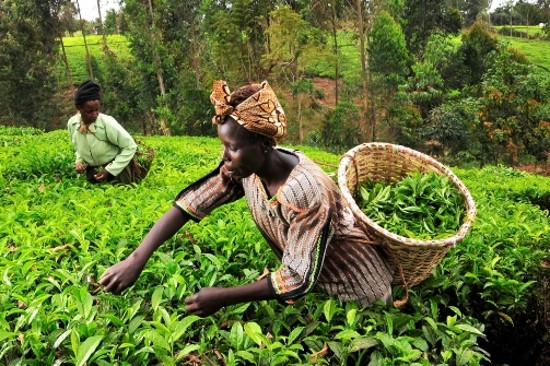The title of this posting is an opinion I share with the Genetic Literacy Project (GLP) and have had for a long time when I consider Africa and post-colonial European Union policies on genetically modified organisms (GMOs). When it comes to agriculture the EU is decidedly anti-science and smacks of what the GLP describes as green neo-colonialism. This is problematic for Africa whose population growth is making demands on food security for the continent.
African country’s agricultural policies are focused on increasing land under cultivation and crop yields. But the continent is facing the existential threat of climate change in ways far more severe than more temperate zones of the planet. African farmers are dealing with crop failures, drought, floods, locusts, armyworm invasions and other deprivations of a physical nature. What they don’t need is EU anti-GMO neo-colonial policies making things worse.
In the EU today, nineteen of its 27 member countries either partially or fully ban GMOs. The European Commission since 2010 has treated GMOs as new or novel foods that are subject to evaluation by the European Food Safety Authority (EFSA). This deliberative body not only looks at GMO crops grown in Europe but also those grown elsewhere that get imported into EU member states.
The organic farming movement within the EU sees anything GMO as a danger. And the organic movement’s lobbyists have been effective. Government aid programs and non-government organizations (NGOs) offering grants to African farmers are also anti-GMO. What this means for African farmers who want to increase yields to not only meet local food demand but also to create bumper crops for export, face not just environmental challenges but also regulatory ones. That’s because many African countries, in order to conform to EU regulations around food, also put anti-GMO roadblocks in the way.
The GLP describes these phenomena as neo-colonial anti-technology practices hyped up by “utopian visions of peasant African farmers working in the fields.” And because the EU and Africa are in close proximity, the two continents are natural markets for what each produces. Hence, African food exports are more likely to find their way into European supply chains and onto European dining tables than crops from other parts of the planet. For African farmers to meet both domestic and export opportunities, therefore, requires them to embrace advanced scientific agricultural practices in which GMOs increasingly play a part.
Agroecology conferences in Africa, largely sponsored by big European companies and NGOs, however, are often dominated by anti-GMO rhetoric. At such events, European presenters blame GMO enhancements of food staples as potentially dangerous leading to increases in cancer, birth defects, HIV/AIDs and more.
For example, a Germany-funded NGO, the Route to Food Initiative (RTFI), sponsored by the Heinrich Boll Foundation, states that its aim is to promote innovative solutions to the problem of chronic food insecurity in Africa. In Kenya where it operates, RTFI literature and practices demonstrate both anti-pesticide and anti-GMO bias. RTFI has been instrumental in getting Kenya’s government to ban the use of 160 globally approved, safe agricultural pesticides. The results of RTFI’s influence can best be seen in the devastation caused by recent locust and armyworm infestations. And the same is occurring where African farmers have sought GMO drought-resistant and salt-tolerant crops. These too are being targeted by anti-GMO propagandists to the detriment of farmers trying to deal with deteriorating environmental conditions.
Europe isn’t alone in contributing to the neo-colonial mindset when it comes to Africa. American-based NGOs and charities also are putting money into agricultural initiatives on the continent with anti-GMO strings attached. These “investors” in Africa’s agricultural viability include the Christensen Fund, Swift Foundation, Rockefeller Brothers Fund, Schmidt Family Foundation, and others. All have little understanding of the challenges African farmers face without using advances in science and technology to help meet local food demand, let alone yield bumper crops for export. The GLP describes the investors as “crusading white-knights riding to save Africans they believe are incapable of judging the science and technologies of modern agriculture on their own.”
A 2020 McKinsey report states, “Agriculture is critical to Africa’s growth and development, but climate change could destabilize local markets, curb economic growth, and heighten risk.” The last point about heightened risk refers to investor risk. But that’s not the risk about which I am concerned. The real risk for African farming is the decline in the physical environment because of climate change. With as much as 20 to 30% of African countries’ GDP coming from agricultural production today, this is where Africa’s risk lies. Higher day and nighttime temperatures disrupt plant growth, changes in patterns of precipitation swing from droughts to floods, and pest infestations like armyworms and locusts are linked to climate change.
Meanwhile, a lack of access to affordable capital sources for small entrepreneurs (I invest in microloans to African entrepreneurs including small farms through Kiva.org) which pretty much categorizes the plight of many African farmers, creates a greater dependency on charitable foundations and their handouts like the ones mentioned above, with many of the latter coming with strings attached that feel very much like neo-colonialism.









